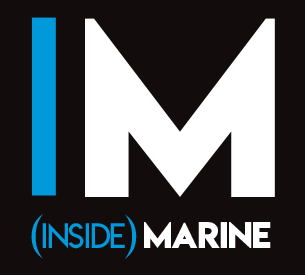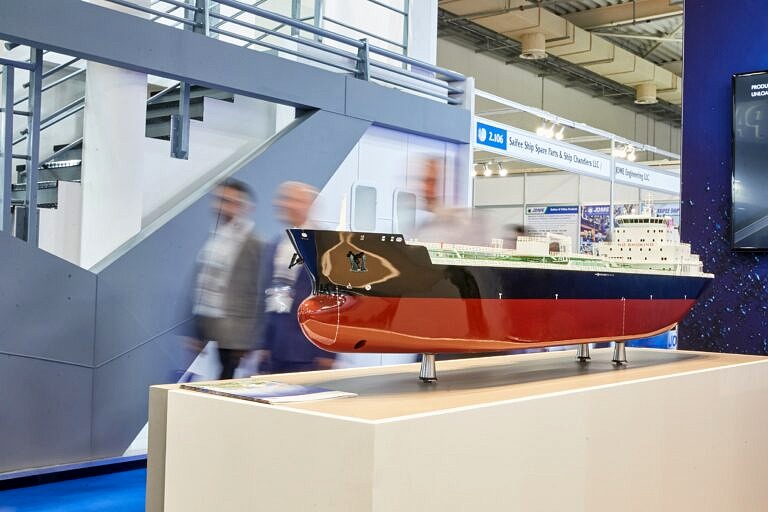Greece’s revitalised shipbuilding industry will be prominently represented during Posidonia 2024, signalling a strong recovery following decades of decline and disrepair. The sector’s Greek renaissance is on the cards after the completion of the consolidation of the country’s shipbuilding units in Syros and in Elefsina, and also due to the restart of Skaramangas shipyard and the increased activity in Halkida.
Neorion Shipyard in Syros and Elefsis Shipyard have repaired over 500 ships, foreign and Greek-owned, since the New York-based ONEX Shipyards and Technologies group took over their operations in 2019. Combined with further domestic output from other ship repair and shipbuilding operations, Greece is now seen as an important contributor to European shipyards’ annual production value of around €43 billion, which comprises a collective civil and naval orderbook value that surpasses that of their Asian counterparts.
“Greece is resurfacing as a credible shipbuilding cluster for vessel repair, conversion and potentially for the construction of newbuildings for Greek and international shipowners and naval forces,” said Theodore Vokos, Managing Director, Posidonia Exhibitions S.A., the organiser of the world’s most prestigious shipping exhibition. “This revival follows decades of underperformance and underinvestment, marked by the absence of a strategic vision.”
Through a slate of strategic partnerships and multimillion investments, Greek shipyard operators and the Greek government are making a statement of their long-term commitment to a sector estimated to currently account for 1% of the nation’s GDP. The sector’s revival will further strengthen both the country’s economy and security.
Partnerships will include naval projects, as the Greek government discusses with the US the joint design and co-production of the new generation of Constellation frigates, while increased activity in the shipyards will empower and support Greek maritime equipment manufacturers, further enhancing Greece’s contribution to Europe’s 50% market share and global dominance in marine equipment manufacture and supply.
In general, Greek shipyards are investing in areas designed to improve their competitiveness and attractiveness, mainly to Greek shipowners who currently contribute 80% of Greek ship repair and new build activity.
ONEX’s business plan includes investments worth $550m for the shipyards with the goal of boosting repair operations to 300 vessels per year. ONEX aims to transform its shipyards into a hub supporting commercial shipping horizontally, energy transition, defense platforms, and industrial solutions, leading the entire industrial ecosystem of the region and strengthening both the economy and the geopolitical position of Greece.
At the same time, Chalkis Shipyard is investing in the installation of photovoltaic systems to power shipyard needs and those of vessels either berthed or docked at its facilities and is proceeding with infrastructure works for newbuilding capabilities of specialised vessels up to 100m in length. Its goal is to expand operational capabilities to about 240 vessels annually, serve ships of larger capacity, and build small ships with new technology.
Furthermore, private and institutional investors are seeing the opportunity presented by Greece’s geographic location, maritime heritage, commitment of the Greek ship owning community, and political will to fund the sector. The recent acquisition of Skaramangas’ by shipowner George Prokopiou and the US International Development Finance Corporation’s $125m loan to Elefsis Shipyards and Industries (ONEX) demonstrate strong investor interest in the Greek shipbuilding sector.
As advancements in maritime technologies gather pace, Greek shipyards have an opportunity to adopt and seamlessly integrate new Artificial Intelligence, Green Energy and Automation Innovations across their operational capabilities to introduce efficiencies, further improve productivity, enhance appeal, and strengthen their orderbooks.
Chalkis Shipyards is already applying new technologies and using digitalisation in programmes related to design for repairs, new constructions, and Customer Relations Management (CRM) platforms. It is implementing 3D model programmes with the relevant equipment in which it is investing, while seeking new ways to introduce AI across the business to optimise operations and automate tasks.
Skaramangas is involved in emission-reducing technologies and scrubber installation, while exploring potential synergies for the development of new ship designs incorporating the new generation of green fuels.
Over 85 shipyards from 26 countries have already confirmed their participation in Posidonia 2024, which will take place from June 3-7 at the Athens Metropolitan Expo.
Posidonia 2024 is organised under the auspices of the Ministry of Maritime Affairs & Insular Policy, the Hellenic Chamber of Shipping, and the Union of Greek Shipowners, and with the support of the Municipality of Piraeus and the Greek Shipping Co-operation Committee.


